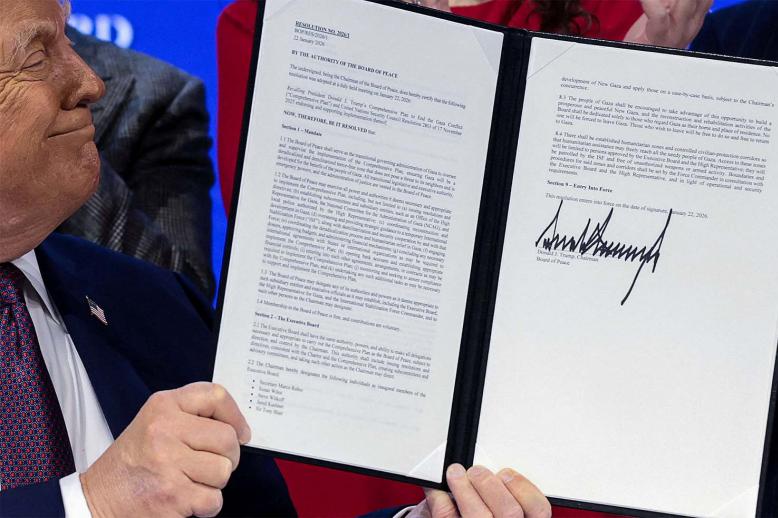Is US Defence Secretary James Mattis on his way out?
During his recent interview on CBS News’s “60 Minutes,” US President Donald Trump seemed to suggest that he no longer valued his defence secretary, James Mattis, as he once did.
Trump said he didn’t know whether Mattis would be leaving his administration. Then the Republican president said Mattis was “sort of a Democrat, if you want to know the truth.” To top it off, Trump claimed he knew more about NATO than Mattis, all the while saying, a bit incredulously, that he liked the former US Marine Corps general.
That Trump pinned the “Democrat” label on Mattis, after describing the opposition party at a recent campaign event as “an angry left-wing mob,” was interpreted as a putdown by the president.
Mattis did not want to get into a tiff with the president. A Pentagon spokesman, asked about Trump’s remarks, said: “Secretary Mattis is laser-focused on doing his job.” Later, on a flight to Vietnam, Mattis said he and Trump had “never talked about me leaving.” Mattis added that he prided himself during his military career in being apolitical and that he was neither a registered Democrat nor Republican.
So, what is going on?
Trump’s problems with Mattis are partly personal, partly policy-related.
Trump resents that many journalists and politicians in Washington refer to Mattis as the “adult in the room,” making Trump feel disrespected. Adding to Trump’s insecurity, Mattis was quoted in Bob Woodward’s book “Fear” about the inner workings of the administration, that he felt that Trump had the mind of an elementary school student. Although Mattis denied that he made such comments, Trump probably believes otherwise.
As for policy differences, Mattis is a traditionalist. He values longstanding alliances, such as NATO, and opposes the “go it alone” strategy that Trump seems to favour as well as Trump’s occasional disparaging comments about US allies.
For example, even though Mattis has long opposed the Iranian regime, he said that the US withdrawal from the Iran nuclear deal was a mistake because it damaged US relations with European partners and did not change Iran’s behaviour.
Mattis also opposed Trump’s announcement after meeting with North Korean leader Kim Jong-un that US-South Korean military exercises should be suspended.
Perhaps most important from Trump’s perspective is that Mattis does not seem personally loyal to him and does not flatter him the way other cabinet members do.
Now that Trump seems to be more comfortable in his job and has appointed like-minded individuals, such as Mike Pompeo and John Bolton as secretary of state and national security adviser, respectively, he does not seem to heed Mattis’s advice. Indicative of Mattis’s falling star, Bolton appointed as his deputy Mira Ricardel, who as head of the transition team for the Pentagon in late 2016 and early 2017 blocked some of Mattis’s choices for top Pentagon jobs.
This means that Trump is more likely to heed the advice of Bolton and Pompeo, who play to the president’s instincts of punishing Iran regardless what European allies think. Although Mattis has no love for Iran, as a military man he knows the risks of military confrontation and may no longer be an influential, countervailing force in the administration if Pompeo and Bolton encourage Trump to confront Iran militarily.
Mattis was instrumental in convincing the president to not withdraw US troops from Syria after Trump declared last March a desire to do so “very soon.” Mattis wanted to maintain the small US military presence because the fight against the Islamic State was not finished. Although Trump altered his position, he is so impulsive and erratic that he might change his mind again regardless of what Mattis thinks.
On the Arab-Israeli conflict, Mattis probably was not happy with Trump’s decision to move the US Embassy to Jerusalem because it strained US relations with a number of friendly Arab governments. As the former commander of US forces in the Middle East, Mattis may also see the peril of unveiling the closely held peace plan drafted by Trump’s son-in-law Jared Kushner, a plan that is rumoured to strongly favour Israel, further upsetting Washington’s Arab allies. Mattis’s departure would likely remove a constraint on pushing such a plan forward.
The thinking in Washington is that Trump is not likely to sack Mattis before the midterm elections in November, especially because many congressional Republicans hold Mattis in high esteem. After the elections, however, Mattis’s days as Pentagon chief may be numbered.
Gregory Aftandilian is a lecturer at the Pardee School of Global Studies at Boston University and is a former U.S. State Department Middle East analyst.
This article was originally published in The Arab Weekly.







